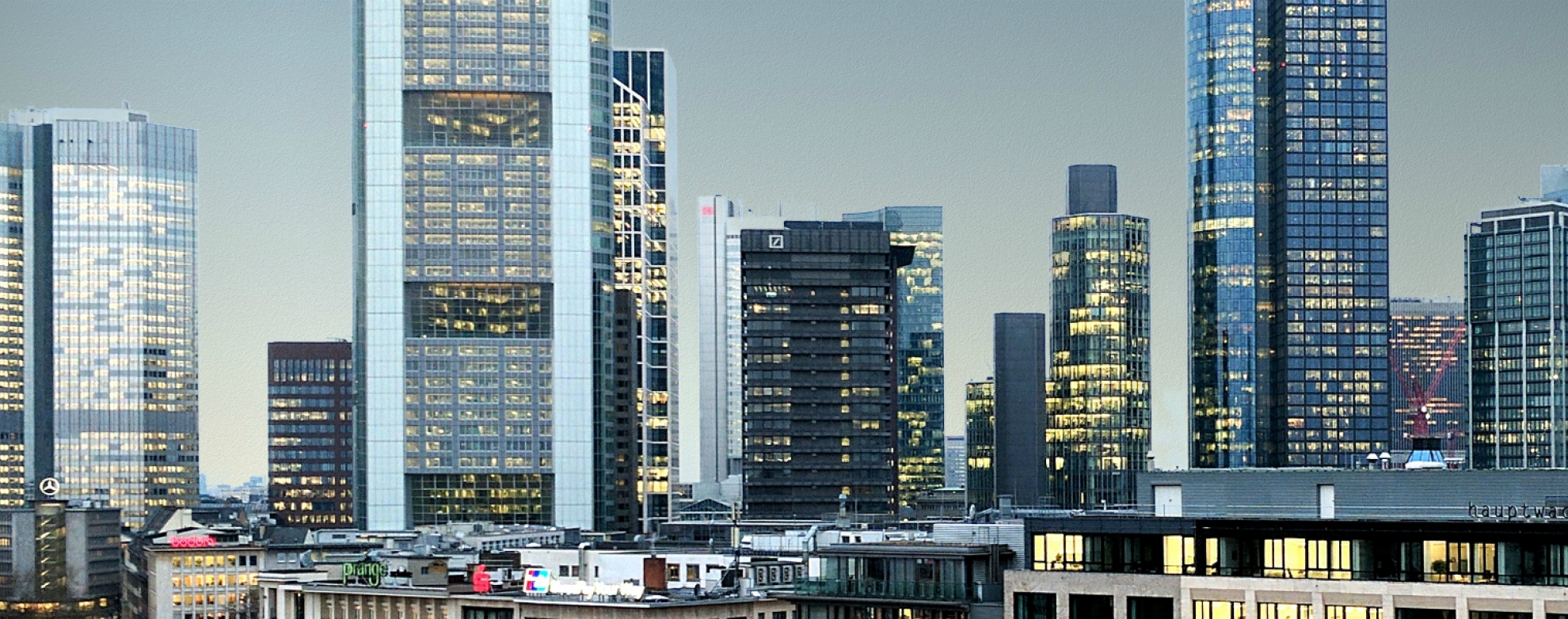The pros and cons of expat life in Frankfurt

Ana Castro is an expat living in Germany and the communications manager for Locanto – an innovative platform for local classifieds that uses image recognition to auto-title and categorize listings. She loves sharing her experiences abroad to help other expats find personal and professional fulfillment.
Frankfurt, located in South West Germany and sitting on the Main river, is only the 5th largest city in Germany. But don’t be fooled by its size: the metropolis, also known as Mainhattan, is one of the most important economic centers of the world.
All big players in international banking – even the European Central Bank – call this city home. In other words: Frankfurt is where all monetary policy decisions – for an area that houses around 330 million people – are made.
Frankfurt has one of the lowest unemployment rates in Germany and attracts thousands of expats every year. So let’s take a look at what life in the financial capital of Europe is really like – based on the views of an expat who actually lives there: me.
Pro: multicultural town
Just a couple of days after moving from a small town in the countryside of Germany to Frankfurt, I was in the U-Bahn (subway), talking on the phone to my mom in Spanish. With the confidence of someone who thinks that nobody can actually understand what is being said, I spent 20 minutes explaining in great detail how bad my last visit to the dentist went. Right after my call, a guy turned to me and said in perfect Spanish: “Wow, your story made my hairs stand up. How are you feeling now?”.
An embarrassing situation indeed, but that’s how I learned my first lesson (and met my first friend) in Frankfurt.
In Frankfurt, you are more likely to hear English, Spanish, Hindi, or Turkish than German. Roughly 30% of inhabitants have a foreign citizenship. Making international friends and getting to know other ways of living is easier here than anywhere else in Germany. Besides, with around 180 different nationalities represented in Frankfurt, you are sure to find someone who shares your culture and/or language.

Con: inequality is the order of the day
Frankfurt is the second richest city in Germany, but the uncomfortable truth is that disparities between haves and have-nots in Germany have risen sharply since the 2008 financial crisis. Frankfurt is quite rich and not too big, so here the so-called “hidden” gap between rich and poor is especially visible.
The most obvious example is Frankfurt’s Bahnhofsviertel (area around the train station), just a 5-minute walk from the heart of the financial district. In the past, the city’s red light district was an area to be avoided due to sex shops, bordellos, crime, and drugs. In the last few years, the area has been rapidly gentrifying with Instagram-able locations, fashionable clubs, and top-notch restaurants.
Despite the übercool gin & tonic-bars, some corners of the Bahnhofsviertel still show a sharp contrast between bankers in suits, hipsters, homeless people and drug dealers – painting a highly-shocking, but also representative picture of inequality.
Pro: in the center of Europe
If you live in Frankfurt, all major German cities can be reached within a 4 to 6-hour window. Large European cities like Amsterdam, Paris, Luxembourg City, Bern, or Brussels are less than 5 hours away.
Additionally, the airport in Frankfurt is Germany’s largest commercial airport and a renowned international air hub. It serves almost 300 destinations with direct flights, making it the leader in that category.

Con: housing and a high cost of living
The Hessian metropolis suffers a demand for affordable housing that far surpasses the available supply. The consequence? Housing prices are going nowhere but up (+17,1% between 2011 and 2016) and Frankfurt is now the second most expensive German city to rent an apartment in.
For this reason, the rental market in Frankfurt can be incredibly competitive. Be prepared to wait in a queue of dozens of people at open-house viewings.. Fortunately, most employers offer expats professional assistance in finding suitable accommodation.
The cherry on top? Rented housing in Germany usually comes without furniture. There is roughly a fifty-fifty chance that the kitchen – abbreviated as EBK in most listings – is included. The good news is that the second-hand market in Germany is growing rapidly and the consumption of used-goods has already become a lifestyle choice for many locals.
So if you’re moving to Frankfurt and are looking for affordable furniture to fill an apartment short-term, it’s worth shopping around the local flea markets or checking the most popular second-hand classifieds sites.
Pro: not just another cider
Your life as an expat in Frankfurt is not complete until you have enjoyed a glass of traditional Apfelwein (Apple wine) in a Kneipe (bar) in the historical district of Sachsenhausen. Apfelwein is Frankfurt’s signature drink par excellence.
In summer, most people enjoy a refreshing glass – mixed with sparkling water (Apfelwein-Schorle) or served hot along with various mulling spices, such as cinnamon or anise (Apfelglüwein).

Con: no one likes payday surprises
Salaries in Frankfurt are considerably higher than the German average. For this reason, many expats can barely hide their excitement when they land a job here and get to know how high their gross salary will be.
Unfortunately, their enthusiasm lasts exactly one month, until their very first paycheck arrives – accompanied by a nasty surprise.
In Germany, income tax is progressive, starting at 14% and rising incrementally to 45% for very high incomes. In addition, everyone has to pay solidarity tax. Furthermore, if you are a member of a church, you will also have to pay tax. Finally, the costs for the compulsory social insurance will also be automatically deducted from your salary.
Summary
Germany’s booming economy and its low unemployment rate make Frankfurt attractive from both an economic and professional perspective. In the multicultural, financially-strong Mainhattan negatives are few and far between. You should, however, prepare for shocking scenes of inequality, high taxes, and outrageous housing prices – among other things.



